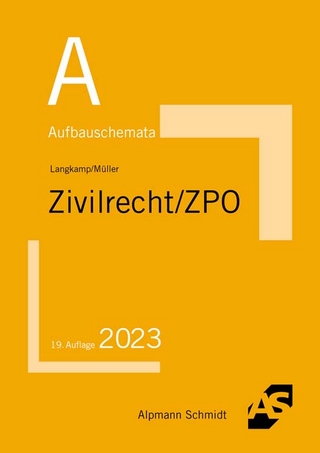
Imperativeness in Private International Law
A View from Europe
Seiten
2022
|
1st ed. 2022
T.M.C. Asser Press (Verlag)
978-94-6265-498-3 (ISBN)
T.M.C. Asser Press (Verlag)
978-94-6265-498-3 (ISBN)
This book centres on the ways in which the concept of imperativeness has found expression in private international law (PIL) and discusses “imperative norms”, and “imperativeness” as their intrinsic quality, examining the rules or principles that protect fundamental interests and/or the values of a state so as to require their application at any cost and without exceptions.
Discussing imperative norms in PIL means referring to international public policy and overriding mandatory rules: in this book the origins, content, scope and effects of both these forms of imperativeness are analyzed in depth. This is a subject deserving further study, considering that very divergent opinions are still emerging within academia and case law regarding the differences between international public policy and overriding mandatory rules as well as with regard to their way of functioning.
By using an approach mainly based on an analysis of the case law ofthe CJEU and of the courts of the various European countries, the book delves into the origin of imperativeness since Roman law, explains how imperative norms have evolved in the different conceptions of private international law, and clarifies the foundation of the differences between international public policy and overriding mandatory rules and how these concepts are used in EU Regulations on PIL (and in the practice related to these sources of law).
Finally, the work discusses the influence of EU and public international law sources on the concept of imperativeness within the legal systems of European countries and whether a minimum content of imperativeness – mainly aimed at ensuring the protection of fundamental human rights in transnational relationships – between these countries has emerged.
The book will prove an essential tool for academics with an interest in the analysis of these general concepts and practitioners having to deal with the functioning of imperative norms in litigation cases and in the drafting of international contracts.
Giovanni Zarra is Assistant professor of international law and private international law and transnational litigation in the Department of Law of the Federico II University of Naples.
Discussing imperative norms in PIL means referring to international public policy and overriding mandatory rules: in this book the origins, content, scope and effects of both these forms of imperativeness are analyzed in depth. This is a subject deserving further study, considering that very divergent opinions are still emerging within academia and case law regarding the differences between international public policy and overriding mandatory rules as well as with regard to their way of functioning.
By using an approach mainly based on an analysis of the case law ofthe CJEU and of the courts of the various European countries, the book delves into the origin of imperativeness since Roman law, explains how imperative norms have evolved in the different conceptions of private international law, and clarifies the foundation of the differences between international public policy and overriding mandatory rules and how these concepts are used in EU Regulations on PIL (and in the practice related to these sources of law).
Finally, the work discusses the influence of EU and public international law sources on the concept of imperativeness within the legal systems of European countries and whether a minimum content of imperativeness – mainly aimed at ensuring the protection of fundamental human rights in transnational relationships – between these countries has emerged.
The book will prove an essential tool for academics with an interest in the analysis of these general concepts and practitioners having to deal with the functioning of imperative norms in litigation cases and in the drafting of international contracts.
Giovanni Zarra is Assistant professor of international law and private international law and transnational litigation in the Department of Law of the Federico II University of Naples.
Giovanni Zarra is Assistant professor of international law and private international law and transnational litigation in the Department of Law of the Federico II University of Naples.
Chapter 1. Between the Application of Foreign Law and the Imperative Application of Domestic Law: A Historical Analysis.- Chapter 2. Testing the Distinction between Public Policy and Overriding Mandatory Rules.- Chapter 3. The Distinction Applied: Forms and Functioning of Imperativeness in EU Private International Law.- Chapter 4. The Minimum Content of Imperativeness in European Private International Law: Imperative Norms Originated in EU Law and Public International Law.- Chapter 5. Conclusions.
| Erscheinungsdatum | 04.02.2022 |
|---|---|
| Zusatzinfo | 2 Illustrations, black and white; XI, 255 p. 2 illus. |
| Verlagsort | The Hague |
| Sprache | englisch |
| Maße | 155 x 235 mm |
| Themenwelt | Recht / Steuern ► EU / Internationales Recht |
| Recht / Steuern ► Privatrecht / Bürgerliches Recht ► Zivilverfahrensrecht | |
| Sozialwissenschaften ► Politik / Verwaltung | |
| Schlagworte | Comparative approach • History of imperativeness • Imperativeness • Influence PIL on domestic sources of imperativeness • International Public Policy • Overriding mandatory rules • Private International Law (IPL) • Public International Law (PIL) • Role of adjudicators • Role of legislators |
| ISBN-10 | 94-6265-498-0 / 9462654980 |
| ISBN-13 | 978-94-6265-498-3 / 9789462654983 |
| Zustand | Neuware |
| Haben Sie eine Frage zum Produkt? |
Mehr entdecken
aus dem Bereich
aus dem Bereich
mit Einführungsgesetz, Unterlassungsklagengesetz, …
Buch | Softcover (2024)
dtv Verlagsgesellschaft
13,90 €
BGB: Allgemeiner Teil, Schuldrecht, Sachenrecht, Familienrecht, …
Buch | Softcover (2023)
Alpmann und Schmidt (Verlag)
18,90 €


